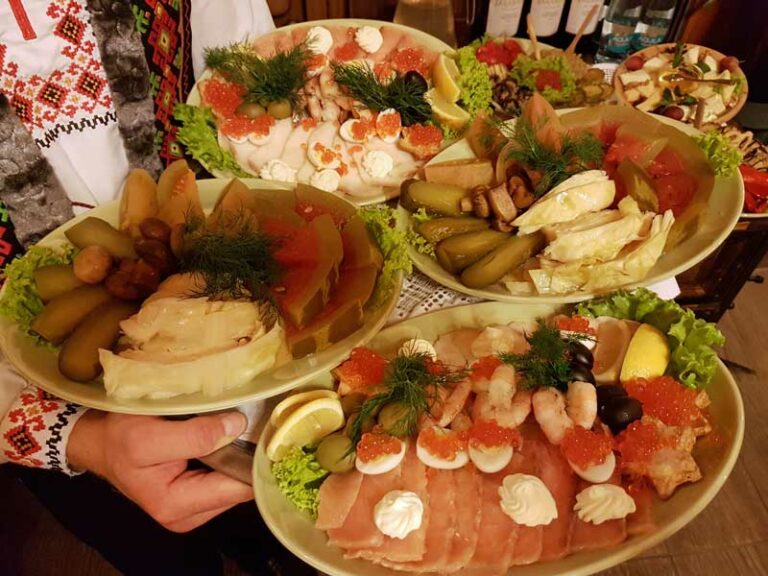Introduction: Exploring Moldovan Cuisine
Moldova, a small landlocked country located in Eastern Europe, has a rich culinary heritage that reflects its diverse cultural influences. Its cuisine is a mix of traditional dishes from the region, including Russian, Ukrainian, Romanian, and Turkish cuisine. Due to its agrarian economy and fertile soil, Moldovan cuisine heavily relies on locally grown crops like grains, potatoes, vegetables, and fruits. Meat, especially pork, is also a staple in Moldovan cuisine. The country’s specialties include mamaliga (a type of cornmeal porridge), sarmale (stuffed cabbage rolls), and placinta (traditional pies).
Orthodox Christianity: The Dominant Religion
Orthodox Christianity is the dominant religion in Moldova and plays a significant role in the country’s culture and traditions. Many Moldovans observe religious dietary restrictions, particularly during important religious holidays, such as Christmas and Easter. During these times, traditional fasting practices are observed, where Orthodox Christians abstain from meat and dairy products for a specific period. In contrast, feasting plays an essential role in religious celebrations, where traditional dishes like coliva (a type of sweet wheat pudding) and pasca (a type of sweet bread) are prepared.
Fasting and Feasting: Important Religious Practices
Fasting and feasting play an essential role in the religious practices of Orthodox Christianity in Moldova. As mentioned earlier, Moldovan Orthodox Christians abstain from meat and dairy products during fasting periods. They may also exclude foods like eggs and fish or avoid consuming food altogether. Feasting, on the other hand, is an essential part of religious celebrations and is a time when traditional dishes are prepared and enjoyed. The traditional Easter meal, for example, includes roast lamb, sarmale, and pasca, while Christmas dishes include stuffed cabbage rolls and sweet bread.
Jewish and Muslim Communities: Dietary Restrictions
While the vast majority of Moldova’s population is Orthodox Christian, the country is also home to small Jewish and Muslim communities. Jewish dietary laws, also known as kashrut, prohibit the consumption of certain foods like pork and shellfish, while also imposing strict guidelines on how food is prepared. Similarly, Muslim dietary laws, also known as halal, prohibit the consumption of pork and alcohol and require animals to be slaughtered in a specific way. These communities often observe their respective dietary laws, even when dining in restaurants or attending social gatherings.
Gypsy Culture: Unique Food Traditions
Moldova is also home to a significant Romani or Gypsy population, who have their unique food traditions. Gypsy cuisine is often characterized by its simplicity, with dishes like roasted meats, stews, and soups being the staples. Some popular Romani dishes include sarmale, mamaliga, and goulash, similar to traditional Moldovan cuisine. However, Gypsy cuisine also includes unique dishes like ciorba (a sour soup) and cozonac (a sweet braided bread).
The Modern Food Scene: Changing Attitudes Towards Food
In recent years, Moldova’s food scene has evolved, with many young Moldovans adopting more modern and international food trends. This shift is also reflected in the country’s restaurant scene, with a growing number of international and fusion restaurants appearing in cities like Chisinau. However, despite these changes, traditional Moldovan cuisine remains a crucial part of the country’s cultural heritage and identity, with many Moldovans still preferring homemade dishes over processed or fast food options.

